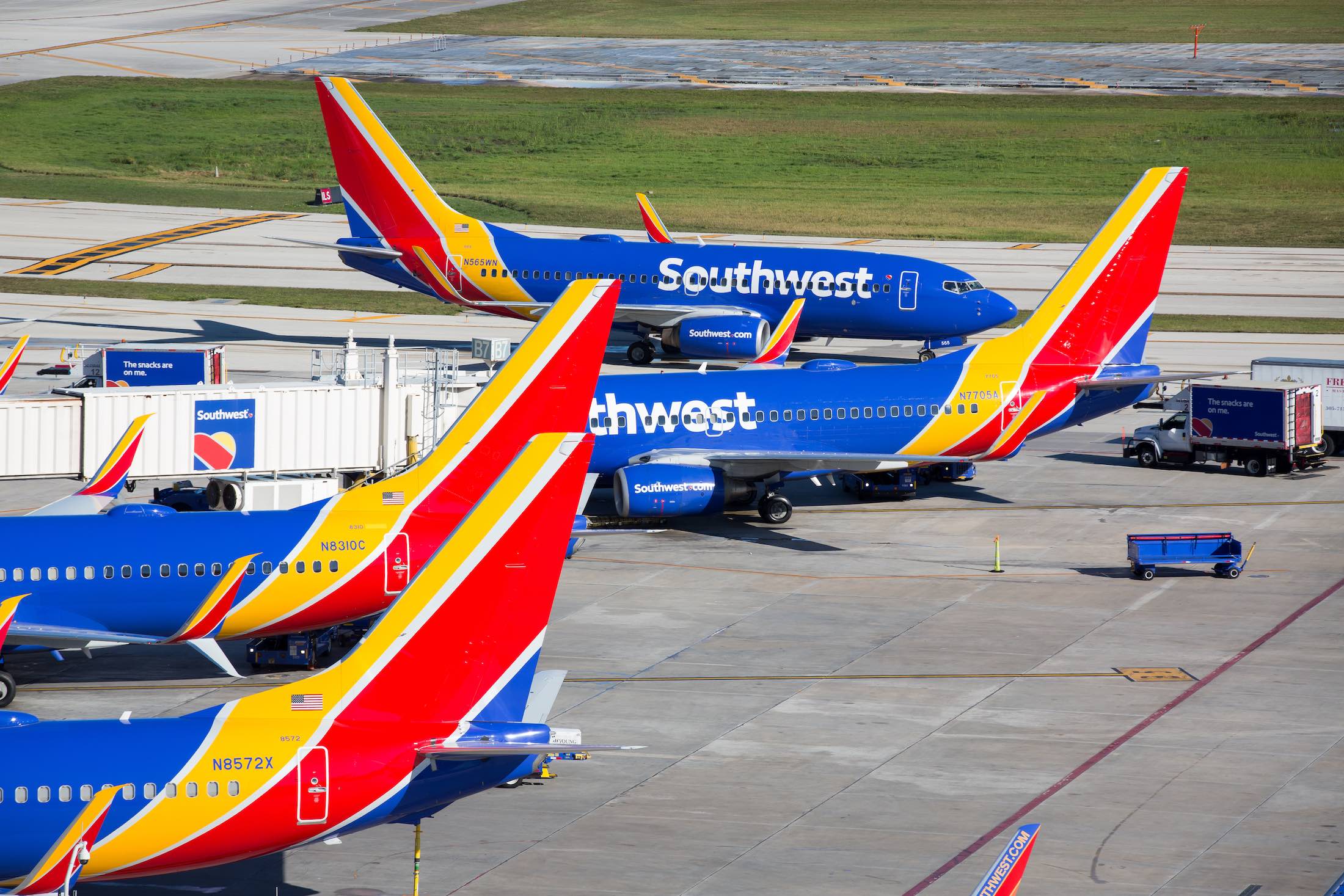
An interesting case is brewing that pits Southwest Airlines against Skiplagged, the website that helps consumers compare fares and book hidden city ticketing in order to save money.
What Is Hidden City Ticketing?
Hidden city ticketing, also called skiplagging as a testament to the growth of the Skiplagged website, is a practice where you book a connecting flight(s) via your intended destination in order to save money on the “nonstop” flight. Since airlines tend to charge a premium for nonstop service, this can save hundreds of dollars.
For example, New York to Chicago may be $300 but booking New York to Chicago on the same flight with a connection to Las Vegas may drop the fare to $189. A savvy Chicago-bound flyer might book the connection to Las Vegas then step off the flight in Chicago.
There are catches, of course. First, you cannot check bags since U.S. airlines do not bags to be “short-checked” in most situations. Second, you risk your frequent flyer account by affixing it to the reservation, since this is one way airlines can punish passengers for engaging in skiplagging. Third, you may run into issues in the case of irregular operations. A flight delay or cancellation may suddenly lead to a different or direct routing which will be harder to undo.
Southwest Airlines Sues Skiplagged
Southwest Airlines does not offer this arbitrage opportunity nearly on the scale of U.S. legacy carriers, but such hidden city tickets do exist on Southwest too.
But the problem seems less about hidden city ticketing and more that Skiplagged displays fares from Southwest Airlines, something that Southwest tightly controls and views as a competitive advantage to keep customers in the dark when price shopping airfare.
Skiplagged helps customers make an informed choice by showing Southwest Airlines fares in its meta search data. Southwest is opposed to this for two contradictory reasons:
It claims Skiplagged:
- Displays incorrect pricing of Southwest Airlines flights and therefore turns customers away
- since Skiplagged does not have direct access to Southwest Airlines spaces, it uses kiwi.com, also the subject of a Southwest Airlines lawsuit, which does not always offer real-time fare information)
- of course that often works to the advantage of Southwest Airlines as well, when lower fares are displayed than are actually available
- Does not have the right to display Southwest Airlines fares
Southwest cites its website terms and conditions, which state:
“Any unauthorized use of any Confidential Information or the Service for any purpose is prohibited.”
That includes:
- Use of the Southwest website or Company Information for any commercial purpose, with the exception of authorized Southwest travel agents/agencies
- Use of the Southwest website for or in connection with offering any third party product or service not authorized by Southwest
- Engaging in any activity with the Service or Company Information that is false or misleading
In short, Southwest Airlines is suing Skiplagged on the basis of the terms and conditions on Southwest.com even though Skiplagged did not agree to them implicitly or explicitly. Remember, Skiplagged does not scrape space from Southwest.com and has entered no formal agreement with the Dallas-based airline.
That’s a fascinating legal question – can a company or individual be held liable for violating terms and conditions it never agreed to on a website it does not directly use?
CONCLUSION
Hidden city ticketing aside, I view Skiplagged as a valuable resource to compare fares, including on Southwest. Do not mistake Southwest’s actions: it is not about protecting customers. The occasional incorrect price displayed on the search screen is rectified when clicking through to purchase. Rather, it is about cutting off access so customers cannot fully understand their options. In that sense, I tend to be skeptical of the argument that the price of an airline ticket on an open market is propriety. Consumers should know that Southwest is rarely the best deal, even with its generous baggage allowance.
(H/T: View From The Wing)




My semi uneducated guess is that Skiplagged/Kiwi is in the wrong here. If you are pulling any sort of information from a website then you have to agree to their terms of service. It can be worked that “by connecting to a website you agree to their terms of service”.
I think this will be settled outside of court in Southwests favor.
I think Southwest absolutely will win their case against Kiwi, but I doubt there is privity between Southwest and Skiplagged. In fact, I would bet Skiplagged’s lawyers have made sure to give the site advice on exactly how to make sure there is no privity (don’t link to Southwest.com, don’t pull your data directly from Southwest, don’t use any of Southwest’s trademarks). In the end, Southwest won’t get any damages from Skiplagged, but if they can shut off the data flow through Kiwi, the end result is basically the same: no Southwest information on Skiplagged’s site.
Strongly disagree here. All information displayed by Southwest is in the public domain until a customer enters their personal information or explicitly agrees to a price disclosure. The only way Southwest gets away with any proprietary argument is by displaying a disclaimer before allowing any user access to pricing information. I think Southwest will lose this case.